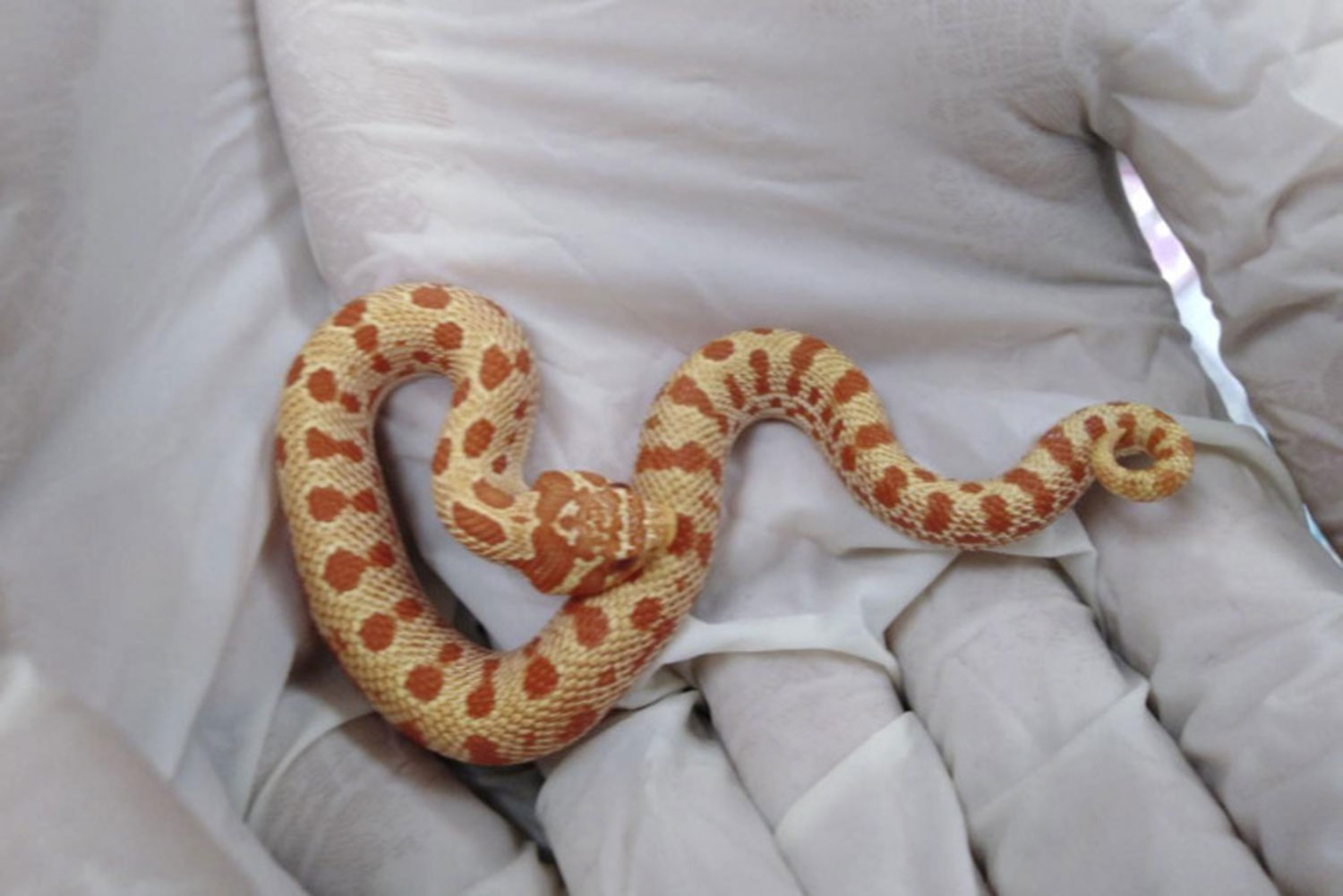Our Terms & Conditions | Our Privacy Policy
Bangkok Post – Thai cabinet approves snake exports
Officials see income opportunity for breeders, and legal pathway to exports under strict supervision
PUBLISHED : 23 Apr 2025 at 20:29
Small
Medium
Large

This small Western Hognose snake was one of 12 snakes found hidden in two parcels mailed from Taiwan to a woman in Chiang Mai in September 2019. Thai authorities want to curb the illegal trade in snakes by allowing exports under strict legal conditions. (Photo taken from @DNP1362 Facebook page)
Thailand’s cabinet has lifted a decades-long ban on exporting snakes, in a bid to boost the country’s economy and curb the illegal trade in the reptiles.
Ministers this week approved a proposal by the Ministry of Natural Resources and Environment to revoke two resolutions from 1990 and 1991 that banned the export of live snakes and unprocessed snake skins.
The officials who made the proposal said the goal is to allow the legal export of snakes bred domestically to meet high demand in the global market. This would generate income for local breeders and also curb illegal snake exports by creating a legal export pathway under strict supervision.
Thailand’s domestic snake trade is currently estimated to be worth at least 275 million baht per year. It was estimated that the export market value could match this figure.
Related businesses include snake feed production (generating at least 180 million baht per year), feed for snakes’ prey (51 million baht); snake-raising equipment such as terrariums (17 million baht); and veterinary care for snakes (6 million baht annually).
Those wishing to export snakes must obtain permits under the Wildlife Preservation and Protection Act 2019 and the Convention on International Trade in Endangered Species of Wild Fauna and Flora (Cites). These regulations will help ensure that the wildlife trade does not harm the ecosystem, authorities said.
The proposal was presented to the cabinet by Environment Minister Chalermchai Sri-on, alongside Veera Kunchairuk, deputy director-general of the Department of National Parks, Wildlife and Plant Conservation; and Sadudee Punpugdee, director of the Wild Fauna and Flora Protection Division.
Images are for reference only.Images and contents gathered automatic from google or 3rd party sources.All rights on the images and contents are with their legal original owners.



Comments are closed.